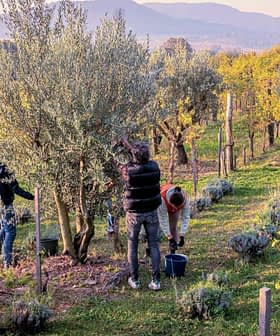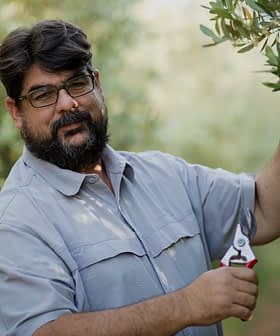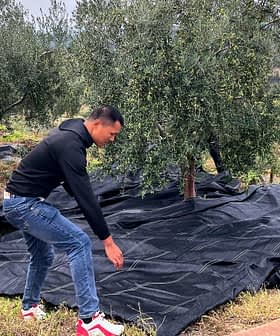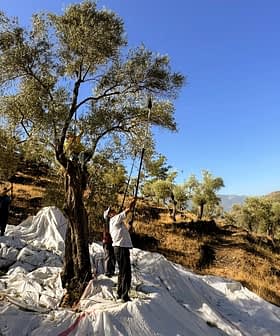 8.3K reads
8.3K readsProduction
A Predicted Record Harvest Would Make Turkey the World’s Second-Largest Olive Oil Producer

Turkey is projected to produce record amounts of olive oil and table olives this year, with official forecasts indicating a yield of over 400,000 tons of olive oil and 735,678 tons of table olives. Favorable weather conditions and government incentives have contributed to the expected bumper harvest, which could help Turkey fill supply shortages in the international market and boost domestic consumption.
In Turkey, initial estimates for the current crop year suggested a higher yield of olive oil than the 228,000 tons produced in 2021/22.
However, the official yield forecast released last week exceeded expectations, projecting the country’s olive oil crop to exceed 400,000 tons this year, a record high. Official provisional figures for table olives also indicate a record harvest of more than 700,000 tons in Turkey.
This record level of our yield shows that we can create a very important opportunity, especially in terms of our foreign trade.
“It is estimated that total table olive production will be 735,678 tons, an increase of 45 percent compared to the 2021/22 season,” Mustafa Tan, the chairman of the board of the Turkish national olive and olive oil council which coordinated the forecast studies, told Olive Oil Times.
“A total of 421,717 tons of olive oil will be obtained with an increase of 79 percent compared to the 2021/22 season,” he added.
See Also:2022 Harvest UpdatesTan attributed the country’s expected record olive oil and table olive yields to the advantageous weather conditions prevailing in Turkey and the purposeful campaign to advance the country’s olive oil production potential.
“We have the most favorable climatic conditions and, therefore, [the olive trees] were relatively little affected by climate change,” he said. “We set the goal of ranking second in the world in 2007. To achieve this goal, with incentives from our Ministry of Agriculture and Forestry, the number of fruit-bearing and non-fruit-bearing trees has increased from 100 to 120 million to 168 to 196 million.”
Due to its geographical location between Europe and Asia on the northeastern side of the Mediterranean basin, Turkey avoided the unfavorable dry and hot weather that affected large parts of western and southern Europe in the summer.
The region’s worst drought in the past 500 years has partially resulted in abnormally low yields across most of Europe’s olive oil-producing nations.
Tan also indicated that Turkish producers and exporters might be able to fill the gap in international markets.
“This record level of our yield shows that we can create a very important opportunity, especially in terms of our foreign trade,” he said. “We believe that Turkey will be able to meet a significant amount of the supply shortages experienced in other countries. We can get out of this global crisis together.”
Tan added the vast olive oil and table olives harvest projected for Turkey could further fuel domestic consumption.
“Such a full crop year could lead to a significant increase in domestic consumption of olive oil and table olives in Turkey,” he said. “In particular, a significant portion of the foreign currency loss due to the shortages and imports of oils such as sunflower oil can be met with olive oil, creating added value both domestically and internationally and contributing to our country’s economy.”
The projections of a bumper olive harvest in Turkey are being reflected in the words of producers from across the country.
“Turkey will have a new record for olive oil quantity this year,” Cem Erdilek, the general manager of Darvari Gida Tarim, an award-winning producer from the Geyliki region near the Dardanelles Strait in northwest Turkey, told Olive Oil Times.
“In all regions of Turkey, the [olive] trees are full of fruits, as we hear from our friends and from the people who are into the olive and olive oil business,” he added. “Our harvest will end around the middle of November, and we are sure that we will double our quantity of olive oil compared to last year.”
However, Erdilek expressed some reservations about whether olive oil prices at origin will be favorable for producers throughout the crop year. He also identified rising production costs as a significant burden for producers to shoulder.
“Harvesting labor costs have doubled this year, and all other related costs are also too high,” he said. “To protect ourselves against inflation, we are investing in harvesting tools and equipment to decrease the cost of harvest.”
Meanwhile, the country’s first state-licensed warehouse for storing olive oil and table olives is planned to be built in the district of Akhisar in Manisa province, often referred to as the center of Turkey’s olive oil industry.
The warehouse, dubbed ‘the missing link’ of the Turkish domestic olive oil supply chain,
is expected to provide local producers with the ability to safely store their oils until the market conditions are right to sell and receive higher revenue.
“We are breaking new ground in Turkey and for our olive and olive oil producers,” said Besim Dutlulu, the mayor of Akhisar. “We bring a total of 6,500 tons of licensed warehouses to our city. In this way, our producers will return to the land, and our city will become the center of table olives and olive oil as it deserves.”









